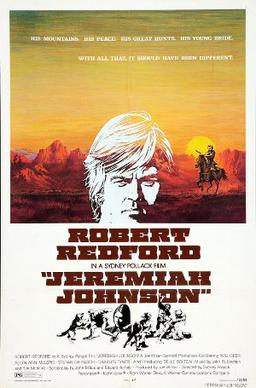Books like Crow Killer
Crow Killer
1972, Raymond W. Thorp
4.9/5
All of the Conrad, none of the guilt!A sight met her passengers which was certainly calculated to shock the nerves of any eastern tenderfoot. Along the brink of the river bank on both sides of the landing a row of stakes was planted, and each stake carried a white, grinning Indian skull. They were evidently the pride of the inhabitants, and a little to one side, as if guarding them, stood a trapper, well-known throughout eastern Montana by the sobriquet of 'Liver-Eating' Johnson. He was leaning on a crutch, with one leg bandaged and the day being hot his entire dress consisted of a scant, much shrunken, red undershirt, reaching just below his hips. His matted hair and bushy beard fluttered in the breeze, and his giant frame and limbs, so freely exposed to view, formed an exceedingly impressive and characteristic picture. -- Peter Koch of the steamer HuntsvilleEqual parts Paul Bunyan, Hannibal Lecter, Horatio Alger, and Wild Boy of Aveyron, this book presents itself as a work of historical non-fiction, but is nothing more than a mash of anecdotes surrounding the life of one of the American frontier's more formidable mountain men. The authors trace his thread through the pioneering mythology of the west, the bits of dialogue reading like some sort of Treasure Island pidgin. While the neutered language may frame the action in a way to make it palatable to the delicate sensibilities of its audience, the action itself would give pause even to Old Testament Yahweh. The technique proves jarring, and the resulting narrative is more a window into the mid-century mindset than that of the nineteenth it professes to chronicle.Liver-Eating Johnson, apparently inured to both pain and preternatural gore, really only wanted to trap beavers and play house with his squaw wife until a group of young Crow warriors butcher her. Johnson, his inner sociopath triggered, declares war on the entire Crow nation and systematically dispatches them wherever they can be found. His preference is to humiliate them by kicking them and eating the still warm livers from their corpses when time allows. The Crow become the laughing stock of the plains until years later, when they and Johnson make peace. In the meantime, the frontier is giving way to Anglo-Saxon moxie. Railroads, mining towns, brothels, ranchers and the like begin to displace both the mountain men and natives. Readers are invited to mourn this dislocation in some sort of knee-jerk romanticized Golden Age way, but this invitation, jocularly couched in the homespun witticisms of scalp hungry psychotics, belies the (and I quote) "mechanical precision" with which Native Americans had previously been slaughtered by Johnson and other mountain men. You see, it isn't so much that violence in and of itself is bad, merely the disposition of those who would practice it. The mountain men, libertarian Übermenschen all, were justified in their actions -- it was, after all, a cottage industry. It's not as if they had been exploiting unspoiled nature to sell it back to the eastern dandies they professed to so abhor and, in so doing, laying the groundwork for exploitation on an industrialized level. Johnson supposedly never liked to take credit for his manly feats, instead deferring to others. In this, he would likewise be proved unknowingly prescient: Hollywood, in 1972, used the story of the man's life as the basis for the movie Jeremiah Johnson. Regrettably, the deranged Santa of yore would be portrayed by the voguish tenderfoot of the day.
